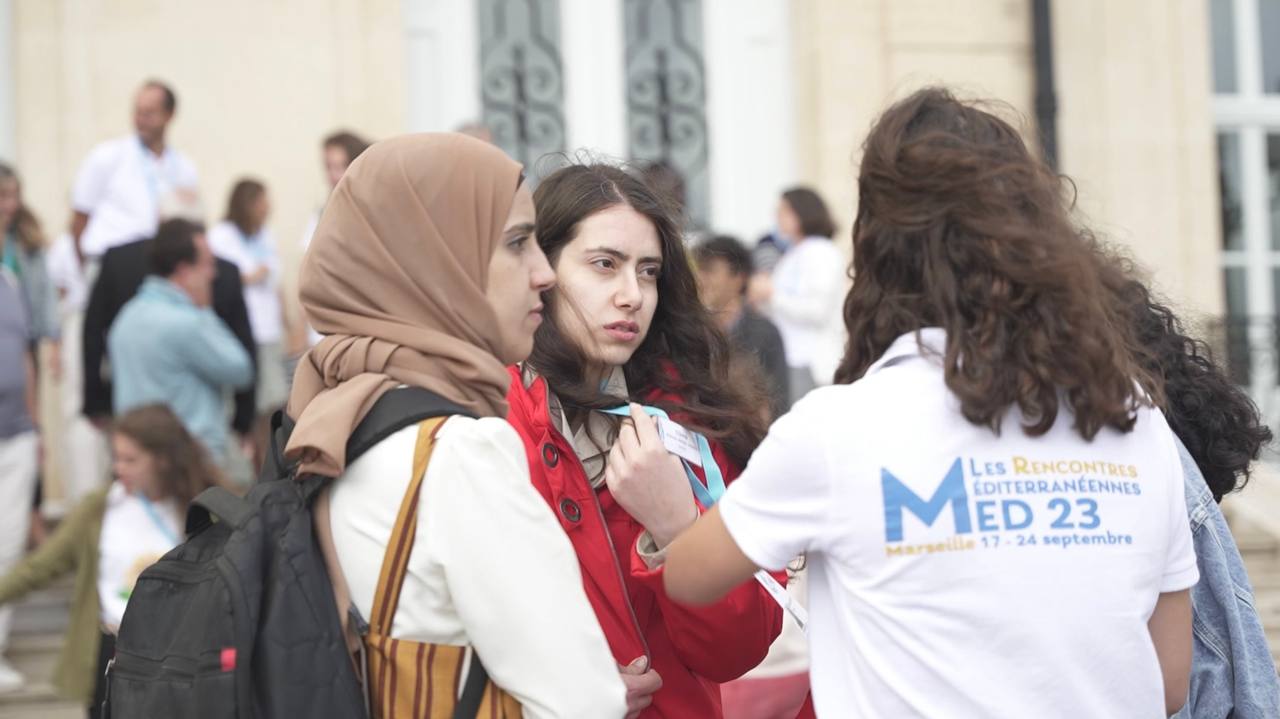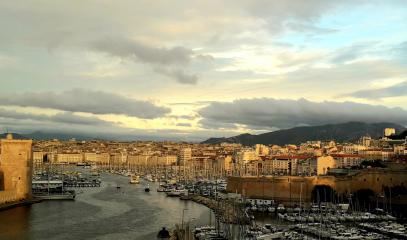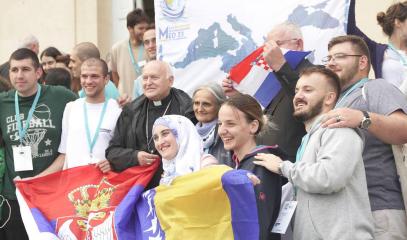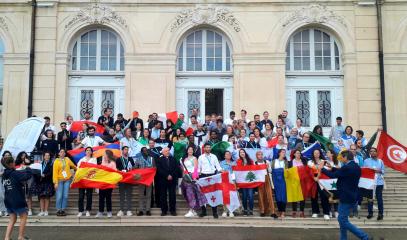Mediterranean voices for Pope Francis in Marseille
From Algeria and Lebanon to Jerusalem to Morocco, bishops and young people of different faiths reach out to each other at a crossroads of migration to imagine new paths of coexistence, starting in La Solidarité, a neighbourhood where 90% of the residents are of North African and Sub-Saharan origin. The pontiff will be given the Manifesto for a Theology from the Mediterranean drafted by representatives from 17 institutions located on the five shores of the sea.
Marseille (AsiaNews) – “The Pope's visit here in Marseille? We are delighted. Our city needs a lot of encouragement to enhance its potential and face the challenges it has,” said Zaïdat Youmix sitting at a table in the small but cosy reading room on the ground floor of one of the social housing tenements in the city’s La Solidarité neighbourhood.
The area lies at the northern edge of the city, next to the hills, where government institutions are overshadowed by drug traffickers who are the real masters of the area, where unemployment is twice the regional average.
The risk of ending up dealing drugs amid an atmosphere of violence is all too real. This is where Zaïdat works with Acelem, an association that encourages children and teens to read, offering them through books and social outreach new perspectives and opportunities. Many of them have never set foot downtown once they start primary school.
In La Solidarité, residents are mostly Muslim, 90 per cent from North Africa and south of the Sahara. Zaïdat is a one of them. Pope Francis’s two-day visit, starting this afternoon, will resonate in the neighbourhood.
After praying with the local clergy in the iconic basilica of Notre Dame de La Garde that dominates the city’s historic core around the old port, the pontiff will stand with religious leaders for a vigil in front of the memorial dedicated to sailors and migrants lost at sea.
The issue of migration will be at the centre of the papal trip to Marseille. The city “looks out onto the sea and well symbolises the vocation of meeting and dialogue among the peoples who live on its shores,” said Father Patrice Chocholski, the director of the Catholic Institute of the Mediterranean (Institut Catholique de la Méditerranée).
The "Manifesto for a Theology from the Mediterranean” stresses "the need for a wise and non-inhuman management of migratory flows, whereby migration is not used as a means on the chessboard of international geopolitics”.
Drafted by representatives of 17 institutions located on the five shores of the sea – from Lebanon to Spain, Italy to France, North Africa to the Balkans, the Manifesto is available in 10 languages, including Arabic and Hebrew, and will be presented tomorrow to Pope Francis.
This will be a major point in the week-long Mediterranean Meetings (Rencontres Méditerranéennes or MED 23). Organised by the Archdiocese of Marseille, it brings together some 60 bishops and as many young people.
The first Meeting was in held in Bari in 2020 followed by one in Florence in 2022, both in Italy with the goal of brainstorming on the most urgent challenge in the region, migration, along with the environmental crisis, religious diversity, the economy, education, work, and peace.
“For us it is a very important opportunity to join forces and imagine new paths based on coexistence,” said Dvir, a Jewish student from Jerusalem, who learnt from experience the "need to promote equal rights among people of every faith. In our land we have no alternative."
Bochra, an Algerian Muslim woman who works with Christians on educational and social outreach projects in her own country, came Marseille to show "the true face of Islam, which literally means peace".
For Elisa, a law student originally from Trento (Italy), "the richness of this meeting is represented above all by the many faces, the many stories and experiences that I am getting to know, in an open and unprejudiced way.”
For Rita, a Lebanese Christian woman, the Meeting provides an oasis of serenity, a clear break from her daily life “in a country going through a tragic crisis, hostage to corrupt politics.” Yet, “as a Christian active in the diocesan pastoral commission and the scouts, I do everything to bring forward a new vision, of civic participation and coexistence for the common good.”
Pope Francis will hear these voices tomorrow morning. After meeting people who are struggling economically, he will speak at the Palais du Pharo during the final session of MED23, when he will also receive a 10-page document prepared by young people and bishops.
"For us, Marseille is a stage in a journey that must continue, always asking ourselves how we believers can contribute to breaking down borders and build a society in the name of peace,” said Archbishop Cardinal Cristobal Lopez Romero of Rabat.
As Bishop Nicolas Lhernould of Constantine (Algeria) put it: “We are called, starting from our faith, to engage in social activism, as citizens in our contexts and globally.”
After the official meeting with French President Emmanuel Macron, Pope Francis will lead the Mass at the city’s Velodrome stadium with at least 60,000 people, Christians and others, a token of dialogue and pluralism, the true bywords of this pilgrimage.
17/09/2023 15:17
11/08/2017 20:05










.png)










